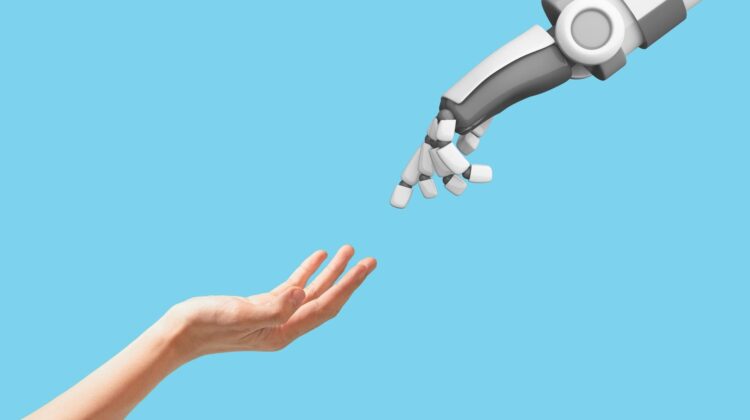
Future of Work: AI’s Role in Shaping Careers and Industries
The role of artificial intelligence (AI) in shaping the future of work and industries is a topic that has garnered significant attention in recent years. The advent of AI technologies has prompted a wave of changes across various sectors, influencing not only the nature of jobs but also the skills required to perform them.
As AI continues to evolve, it is becoming increasingly clear that its impact will be profound and far-reaching. One of the most noticeable changes brought about by AI is the automation of tasks that were previously performed by humans.
In manufacturing, for example, robots equipped with AI are now capable of performing complex tasks with precision and efficiency, reducing the need for human intervention. This shift has led to concerns about job displacement, particularly for workers in roles that are highly susceptible to automation.
However, it is important to note that while AI may eliminate certain jobs, it also has the potential to create new ones. As industries adopt AI, there is a growing demand for professionals with expertise in AI development, implementation, and maintenance. These roles require a deep understanding of machine learning, data analysis, and software engineering, skills that are becoming increasingly valuable in the modern job market.
Moreover, the integration of AI into various industries is not limited to automation. In healthcare, AI is being used to analyse medical data, assist in diagnostics, and even predict patient outcomes. These applications have the potential to improve the quality of care and increase efficiency within the healthcare system.
Similarly, in the financial sector, AI algorithms are being employed to detect fraudulent activities, assess credit risks, and optimise investment strategies. These developments are transforming the way financial institutions operate, making them more agile and responsive to market changes.
The impact of AI on the workforce extends beyond the creation of new jobs and the automation of existing ones. It also necessitates a shift in the skills that workers need to possess.
As routine tasks become automated, the demand for cognitive skills, such as critical thinking, problem-solving, and creativity, is on the rise. Workers are now required to engage in continuous learning and upskilling to stay relevant in a rapidly changing job market. Educational institutions and training programs are responding to this need by offering courses and certifications in AI and related fields.
Governments and organisations are also recognising the importance of preparing the workforce for the AI-driven future. Many are investing in initiatives aimed at reskilling and upskilling workers, ensuring that they have the necessary competencies to thrive in an AI-enabled economy.
Despite the numerous benefits associated with AI, its integration into the workplace is not without challenges. One of the primary concerns is the ethical implications of AI deployment. Issues related to data privacy, algorithmic bias, and the potential for AI to be used in ways that exacerbate social inequalities are topics of ongoing debate. Ensuring that AI is developed and used responsibly is critical to mitigating these risks.
Furthermore, the rapid pace of AI adoption has led to a growing digital divide. While some regions and industries are at the forefront of AI innovation, others are lagging behind, lacking the infrastructure and resources needed to leverage AI effectively. This disparity has significant implications for economic development and global competitiveness. Addressing this digital divide requires a concerted effort from governments, businesses, and international organisations to promote inclusive growth and equitable access to AI technologies.
Another challenge is the potential impact of AI on job quality. While AI can enhance productivity and efficiency, there are concerns that it could lead to the degradation of certain types of work. For example, the gig economy, which relies heavily on digital platforms and AI algorithms, has been criticised for creating precarious employment conditions with limited job security and benefits. Ensuring that the future of work is both innovative and inclusive requires policies that protect workers’ rights and promote fair labour practices.
The role of AI in shaping careers and industries is a multifaceted issue that requires a nuanced understanding. On one hand, AI has the potential to drive economic growth, improve efficiency, and create new job opportunities. On the other hand, it presents challenges related to job displacement, ethical considerations, and social inequalities.
Navigating these complexities requires a collaborative approach that involves stakeholders from various sectors, including policymakers, industry leaders, educators, and workers themselves.
In conclusion, the future of work in an AI-driven world is one of both promise and uncertainty. As AI continues to advance, its impact on careers and industries will become increasingly evident. Embracing the opportunities presented by AI while addressing its challenges is essential to ensuring a prosperous and equitable future for all. The journey towards this future is not without its obstacles, but with thoughtful planning and collaboration, it is possible to harness the power of AI to create a world where technology enhances human potential and drives positive change.
Author: Theodore Y. Sanders
Expert in new technologies. He has always lived in Silicon Valley where he consults for numerous technology start-ups. Collaborates with the Deeping in the area of technoclogical innovation and technology
